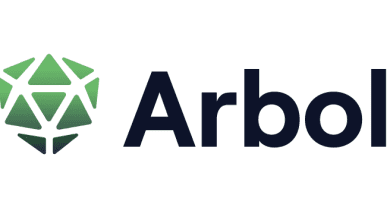5 surprising things your homeowners insurance covers
5 surprising things your homeowners insurance covers
A home is the biggest purchase most people make in a lifetime, and homeowners insurance is essential for protecting your biggest asset.
Homeowners insurance covers the cost of fixing or replacing your home when it is damaged by a covered event, such as a fire, or certain types of bad weather. It even covers your personal property and other structures on your property, and provides liability protection for injuries or property damage you or your family may cause.

While coverage can vary based on your specific policy and the state you live in, there are some unexpected things that you may find covered by homeowners insurance.
Keep in mind, even if property damage is covered by your insurance, you’ll still have to pay your out-of-pocket deductible before the insurance kicks in. For instance, if you have a $500 deductible, then the first $500 of each claim is your responsibility. Also, before you make any assumptions about your coverage it’s important to review your policy and talk with your insurance provider.
Subscribe to the Select Newsletter!
Our best selections in your inbox. Shopping recommendations that help upgrade your life, delivered weekly. Sign up here.
Home invasion… by unruly bears
If a hungry bear or other wild animal invades looking to raid your fridge, any damage to the home should be covered by your homeowners insurance policy. This doesn’t cover damage done by pets or other animals you own, and the animals typically need to be considered “wild” for your insurance to kick in. Read the fine print because there are likely to be exceptions for destruction at the hands of common household pests, such as rats, squirrels, and insects.
Identity theft
Identity theft protection is available through a number of homeowners insurance providers, although it’s often an add-on coverage and not part of a standard policy. With this type of coverage, you are protected from losses that go beyond property stolen from your home. This coverage may cover the costs of services to help repair credit or restore your identity, or it might provide a direct reimbursement of stolen money.
Meteorites and other falling objects
Most homeowners insurance policies cover damage from falling trees or branches under certain circumstances, but protection against falling objects goes far beyond your shrubbery. The damage to your home or personal property caused by meteors, asteroids, and other space junk is typically covered by a homeowners insurance policy.
In the extremely unlikely event of a space rock crashing into your living room, not only will you not be on the hook for the repairs, but you’ll also be the proud owner of a (potentially valuable) meteorite.
A hotel or Airbnb
In the worst-case scenario, damage to your home can be so extensive you won’t be able to live there while it’s being repaired. Under your policy’s loss of use coverage, your insurance may help cover additional living expenses you incur due to a covered event. This includes the cost of a hotel or Airbnb, and other expenses, such as the costs for pet boarding, moving, and renting storage space. If your food bill increases beyond what you normally spend because you have to eat out more, that could also be covered.
Your child’s college laptop
Homeowners insurance covers the personal property of you and your family, and this protection often applies to your dependents’ belongings when they’re in college. There are a few important caveats to be aware of in this situation. The coverage may only apply if the student is living on campus, and there could be an age limit. Read your policy carefully because the coverage limit for personal items taken outside of your property may be lower than if something is stolen from your home.

What isn’t covered by homeowners insurance?
It’s important to do a detailed review of your homeowners insurance policy to understand exactly what is and isn’t covered. There is also nuance to when certain incidents are covered by your insurance. If your pet dog bites a neighbor, a homeowners insurance policy’s liability coverage will protect you. However, some policies may exclude certain breeds of aggressive dogs from liability coverage.
What’s covered by a homeowners insurance policy varies based on a lot of different factors, but generally, your policy won’t cover:
- Earthquakes
- Floods
- Normal wear and tear
- Damage from lack of maintenance
- Items that exceed your policies insurance limit (artwork, jewelry, collectibles)
For most incidents that aren’t covered under a standard policy, you may be able to pay extra to add riders for specific coverage, such as for floods or earthquakes. If you have an expensive wedding ring or Beanie Baby you want covered, it’s a good idea to bring this up with your insurance provider. You may need a special rider for certain items, which could even require an appraisal to determine their value.
How to find the best home insurance provider
The best homeowners insurance provider for you is the one that can provide all the coverage you need and the lowest possible price. But finding the right homeowners insurance for you isn’t as simple as locking in the lowest monthly premium.
Start your search for home insurance by figuring out the type of coverage you need and identifying other factors that can impact your policy. Your property’s location will affect what coverage you need and how much it costs. If you’re closer to a fire station or fire hydrant, you’ll pay less than a similar home located farther away. Installing a home security system could also get you a discount on your insurance.
Getting the best coverage can feel like more of an art than a science because there are so many tradeoffs to consider. You can get a lower premium if you increase your deductible, but in that situation, you want to make sure you have an emergency fund that covers the potentially higher out-of-pocket cost. Regardless of what decision you make, you can always shop around and make changes to your plan later.
Select ranked Nationwide, Lemonade and Hippo as some of the best homeowners insurance companies due to their policy coverage, accessibility and opportunities to save.
Nationwide Homeowners Insurance
- CostThe best way to estimate your costs is to request a quote
- Maximum coverage
- App available
- Policy highlightsPolicy covers home and property damages caused by theft, fire and weather damage. It also covers personal liability, loss of use and unauthorized transactions on your credit card
- Does not coverWater damage, earthquakes, flood insurance, identity theft, high-value items, rebuilding home after loss (these can all be purchased as add-ons for extra coverage)
Pros
- Ability to manage policy online
- Bundle with other types of insurance to receive a discount
- Get a discount if your home has smoke detectors, fire alarms, burglar alarms or other qualifying protective devices
- Discount for renovating home’s plumbing, heating, cooling and electrical systems (home renovation credit)
- Receive a discount if you purchased your home within the past 12 months
- Gated community discount
Cons
- Smart home technology discount not available in all 50 states
Lemonade Homeowners Insurance
- CostStarts at $25/month; can vary by state, age of the home and other factors
- Maximum coverage
- App available
- Policy highlightsPolicy covers your home and property for damages caused by wildfires, extreme weather, crime, and vandalism. It also covers liability claims for damage you accidentally cause to others
- Does not coverPower, water, or heat going out, or bug infestation; some events may not be eligible for coverage, depending on the circumstances — see here for more information
Pros
- Ability to cancel coverage at any time
- Affordable monthly cost
- Make claims through the app
- Ability to easily switch over from a different insurer
- Can add additional coverage for expensive personal items like jewelry and cameras
- Ability to make payments through escrow or using a credit card
- Also covers condos
- Simple claims may be paid almost instantly
Cons
- Only available in 24 states
- Cannot enroll over the phone
Hippo Homeowners Insurance
- CostThe best way to estimate your costs is to request a quote
- Maximum coverage
- App available
- Policy highlightsPolicy covers dwelling and related structures, personal property, personal liability, loss of use, ordinance or law coverage, home office equipment damage, water backup, high-value items, coverage for smart home appliances and more
- Does not coverProperties outside of the U.S.
Pros
- Can receive a quote in as little as 60 seconds
- Wider array of coverage offered within their standard policy
- Many technology-focused benefits/add-ons
- Discount for activating smart home devices
- Receive a discount if you purchased your home within the past 12 months and receive a policy renewal discount if there have been no lapses in coverage
- Discounts on theft protection devices
- Discount for installing a hail-resistant roof
- Bundle with other types of insurance to receive a discount
Cons
- Only available in 40 states
How do you file a homeowners claim?
To file a homeowners insurance claim, you’ll want to notify your insurance company as soon as possible after the event. You’ll then typically need to provide photos of the damage, receipts and any other documentation or proof that is related to the claim you’re filing. This will help the company assess the damages and eventually approve your claim and pay you back.
Bottom line
Home insurance is a vital tool for protecting your most valuable asset, and if you have a mortgage, your lender will require it. Understanding what is covered by your homeowners insurance helps you make the most out of your policy while paying as little as possible. What’s included in basic coverage, and what’s available as an add-on, vary depending on the insurance policy and state where you’re getting coverage.
Catch up on Select’s in-depth coverage of personal finance, tech and tools, wellness and more, and follow us on Facebook, Instagram, and Twitter to stay up to date.
Editorial Note: Opinions, analyses, reviews or recommendations expressed in this article are those of the Select editorial staff’s alone, and have not been reviewed, approved or otherwise endorsed by any third party.



